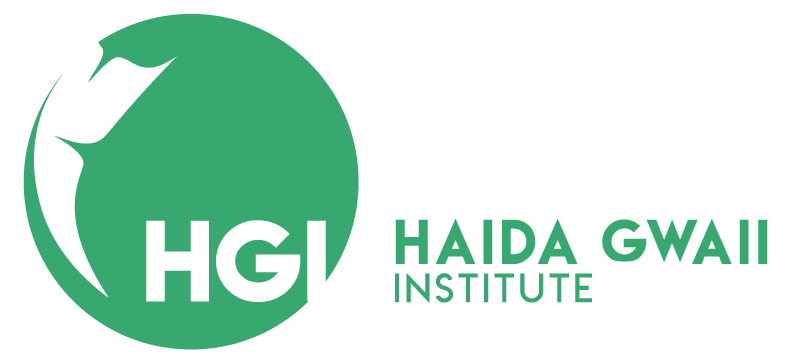Natural Resource
Science
Haida Gwaii Semester in Natural Resource Science
September to December, HlG̱aagilda Skidegate
This program is well suited for undergraduate students who have completed the first two years of a natural science-based degree. It integrates classroom and field instruction with local guest speakers and numerous field activities. Much of the content builds on foundational ecological theories and observational science. Some social theories and concepts, particularly around linked social-ecological systems, are introduced later in the term.
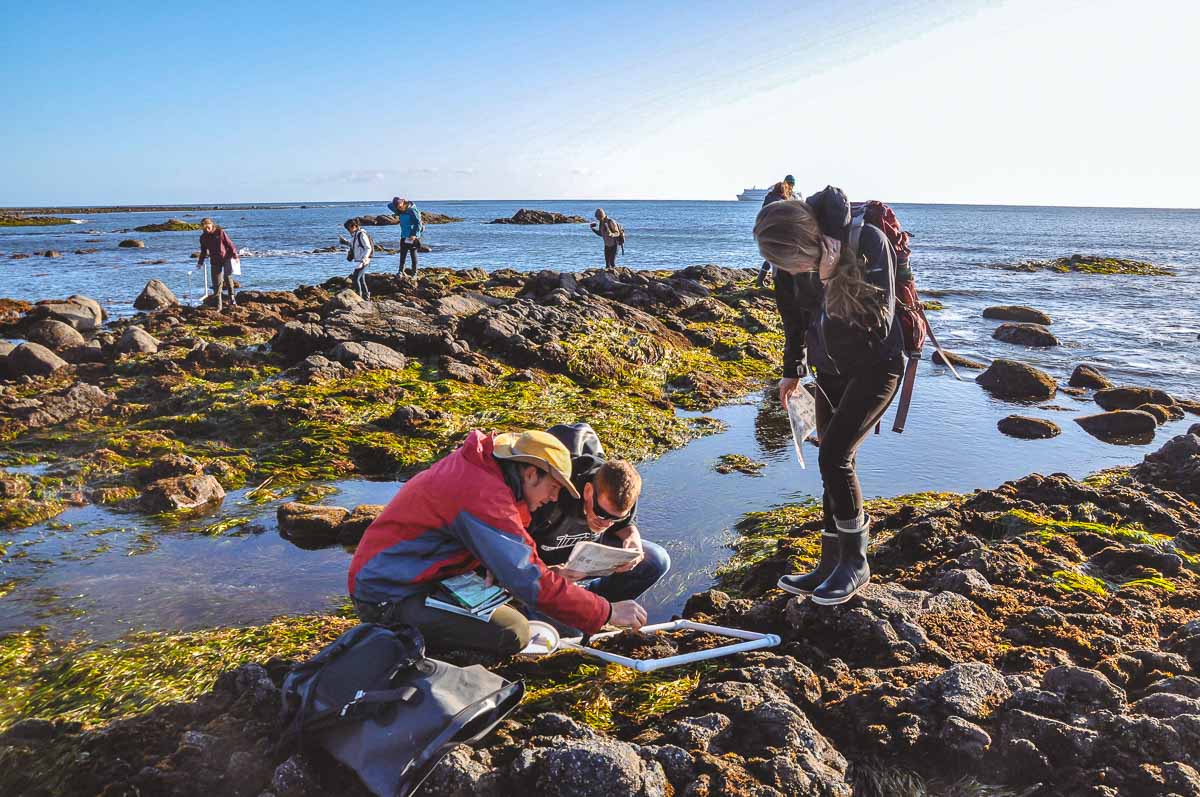
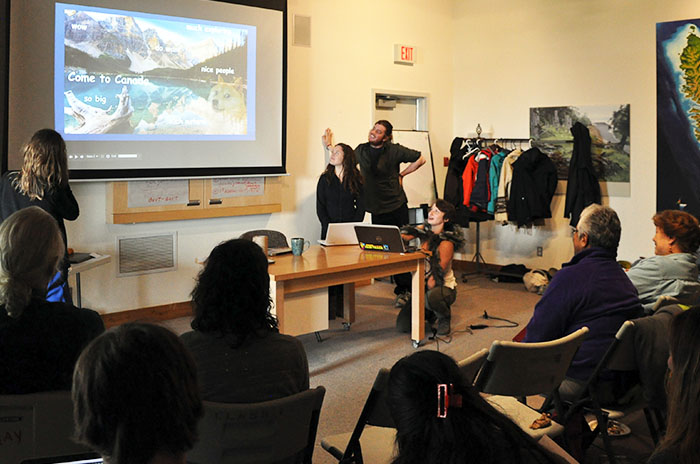
HGSE 352 - Indigenous Governance & Land Stewardship Seminar
This semester-long weekly seminar provides an overview of First Nations’ governance of resources and territory, with a focus on Haida Gwaii. Through case studies and guest speakers, we will examine local resource governance structures and processes, such as those related to land and marine planning, forestry, fisheries, cultural heritage, and protected areas. In order to understand how these resources are managed today, we need to consider the colonial history of the province. How did the Crown gain control of lands and resources and exclude First Nations from participation in resource governance and economies? What are the different ways the First Nations have fought that exclusion and been successful in regaining access and control? How are First Nations engaging in resource management with provincial and federal governments and other diverse interest groups today? Course topics include: Indigenous laws, stewardship principles, and traditional knowledge; colonialism and resistance; Aboriginal rights; First Nation-Crown relations; reconciliation; and co-management.
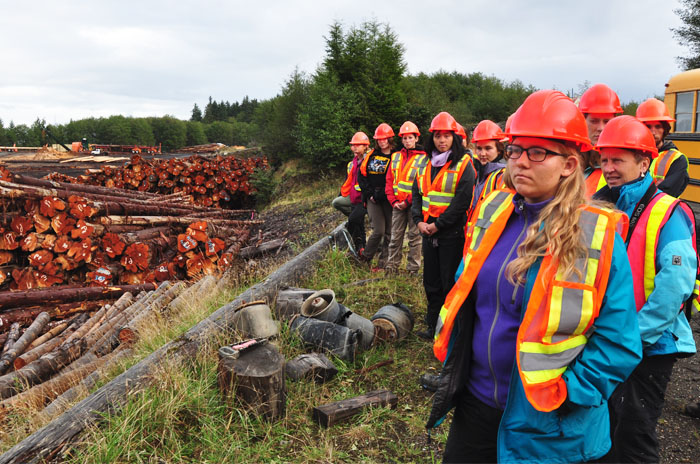
HGSE 355 - Applied Ecology of Coastal Terrestrial Ecosystems
This course is an in-depth examination of the processes that shape coastal terrestrial ecosystems through time and applications of that information to current ecological reality. It covers topics from the historical geology of the islands to the structure, function, and diversity of forests and landscapes today.
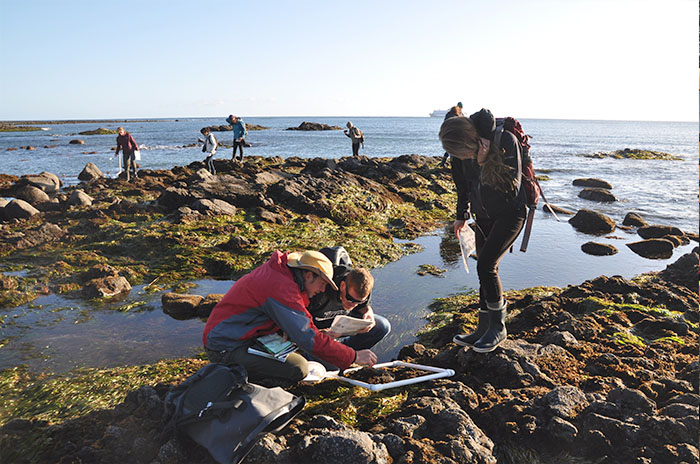
HGSE 356 - Biophysical Dynamics of the Marine-Terrestrial Interface
Land and sea dynamics have profound influences on one another in Haida Gwaii, and students taking this course have a unique opportunity to explore such marine-terrestrial connections. Students learn about nutrient cycling between the marine environment and coastal forest ecosystems, how the physical characteristics of this interface can affect these inputs, and which species play a pivotal role in driving interactions.
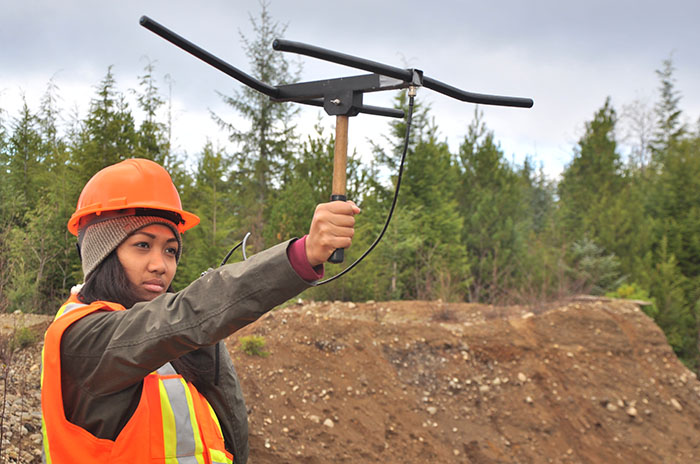
HGSE 357 - Ecology & Management of Island Wildlife
This course focuses on unique biological attributes of island wildlife, such as subspecies, isolated populations, and distinct evolutionary pathways. Topics for this course include an overview of endemic species on Haida Gwaii and their evolutionary history in the context of island biogeography theory, as well as an examination of the parameters that drive population-level outcomes for native and introduced species.
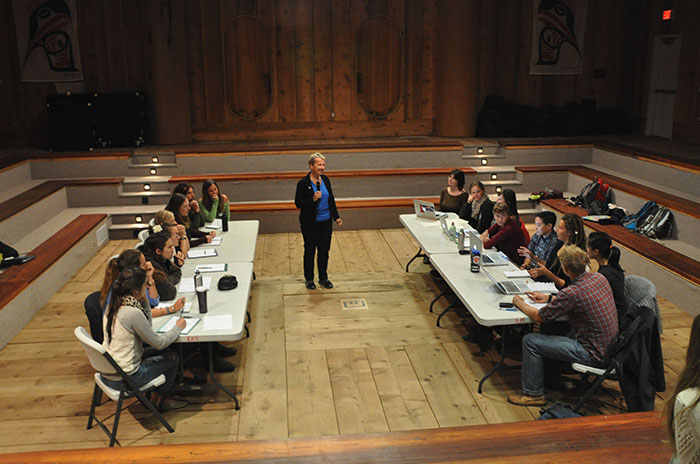
HGSE 359 - Ecosystem Based Management
EBM is an “adaptive approach to managing human activities that seeks to ensure the coexistence of healthy, fully functioning ecosystems and human communities” (Pacific North Coast Integrated Area Plan, 2017). While the concept of EBM is well established in the academic literature, there remains a wide gap between theory and practice. Haida Gwaii provides rich examples, both terrestrial and marine, through which to analyze benefits and challenges of applying EBM in a real-world setting.
